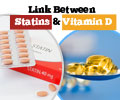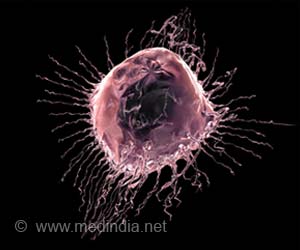According to a recent study conducted by McGill University in Montreal it was found that vitamin D helps in maintaining healthy bones and also prevents cancer.
According to a recent study conducted by McGill University in Montreal it was found that vitamin D helps in maintaining healthy bones and also prevents cancer . The sun shine vitamin as it is called protects people from colon cancer, breast cancer and prostate cancer. It was also found that pregnant women consuming too little of this vitamin gave birth to smaller babies. Experts from Canada, US and Australia met in Toronto and discussed the health benefits of the vitamin. Vitamin D builds and maintains strong bones by increasing the absorption of calcium from foods.
Vitamin D plus calcium, reduces the risk of fractures in elderly adults and postmenopausal women. Researchers at the University of California at San Diego analyzed data from 63 studies and found that link between vitamin D intake and cancer risk. The report said that by a daily intake of 1,000 international units (IU) it was found to reduce the risk of colorectal cancer by 50%. The Harvard Medical School suggests that 1,500 IU of vitamin D each day reduced the risk of developing digestive cancers by 45%.According to a study which was part of the Women's Health Initiative trial, it was found that 500 milligrams of calcium plus 200 IU of vitamin D, taken twice daily, would reduce the risk of breast cancer in women aged 50 to 79. Increased outdoors activities, consumption of cod liver oil and drinking nine glasses of milk per week significant reduced the risk of cancer and bone fractures. The active form of vitamin D inhibits the growth of cancer cells in the colon, breasts, prostate and kidneys. As we age the ability of our body to synthesize vitamin D also reduces and hence the consumption dosage also varies. People between the ages of one and 50 are recommended to consume 400 IU of vitamin D daily, those aged 51 to 70 need 800 IU, and after the age of 70 a daily intake of 1000 IU is recommended. Vitamin D occurs naturally in oily fish, liver, egg yolks and butter.
Foods fortified with the nutrient include milk, soy and rice beverages and some brands of orange juice. The body synthesizes vitamin D when exposed to the sun's UVB rays for short periods of time. But winter season and application of sunscreen blocks vitamin D production by more than 90 %. On the other hand unprotected sun exposure helps the body to make vitamin D, but it also increases the risk of skin cancer. Multivitamins generally provide 400 IU of vitamin D. it is better to take supplements that contains D-3 instead of D-2, which is less potent as increased consumption results in high blood calcium, kidney stones and kidney failure.











